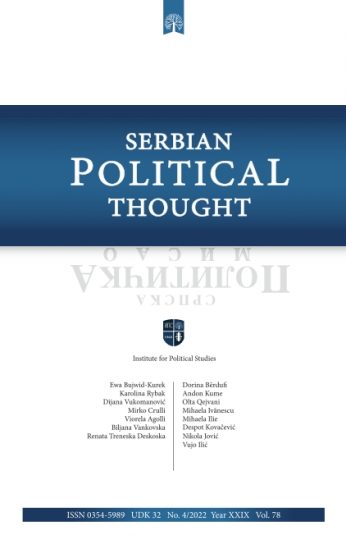Main topic
spt1/2012
Pentecostalism as a Form of Protest Movement Against Economic Decline and Tyranny: The Case of Celebration Church in Zimbabwe
Abstract
In the last decade, citizens of Zimbabwe experienced the worst economic and political crisis of all time, which resulted in the total collapse of the economy. This study sought to examine the role of religion during this period of economic and political turmoil. Contemporary research and sociological analysis, focused on Pentecostalism in Zimbabwe, often shows Pentecostalism as a quintessentially popular religion that addresses existential problems and offers protection and security to the suffering. In order to contribute to this discourse, an empirical study was conducted amongst the believers of the Celebration Church in Zimbabwe. The data obtained showed Pentecostalism as a form of protest movement against economic and political turmoil.
References
- Barrett, D.B., Kurian, G.T., Johnson, T.M. (2001) World Christian Encyclopedia: A Comparative Survey of Churches and Religions in the Modern World, Vol 1. New York: Oxford.
- Bruce, S. (2003) Politics and Religion. Cambridge: Polity.
- Celebration Church (2011a) Our Beliefs. celebrate.org (Accessed on 5-03-11)
- Celebration Church (2011b) Victory Business Forum. celebrate.org (Accessed on 5-03-11)
- Chalfant, H., Beckley, R. and Palmer, C. (1981) Religion in Contemporary Society. California: Alfred.
- Cox, H. (1996) Fire from Heaven: The Rise of Pentecostal Spirituality and Reshaping of Religion in the Twenty-First Century. Reading, Mass: Addison.
- Dayton, D. W. (1987) Theological Roots of Pentecostalism. Michigan: Zondervan.
- Daily News, (The). 18 April 2011. 31 years of hell.
- Deuschle, T. (2009) Building People Building Dreams: How a Church can Change a Nation. Harare: Kingdom Celebration.
- Deuschle, T. (2011) Interview with Lovemore Ndlovu at Celebration Centre. 29 March 2011. Harare: Zimbabwe.
- Droogers, A. (2005) Pentecostalism. In: Santa Anna, J. (ed.). Religions Today: Their Challenge to the Ecumenical Movement. Geneva: World Council of Churches.
- Furseth, I. and Repstad, P. (2006) An Introduction to the Sociology of Religion. Surrey: Ashgate.
- Hunt, S. (2002) Religion in Western Society. New York: Palgrave.
- Hunt, S. (2003) Alternative Religions: A Sociological Introduction. Hampshire: Ashgate.
- Hunt, S., Hamilton, M. and Walter, T (1997) Introduction: Tongues, Toronto and the Millennium. In: Hunt, S., Hamilton, M. and Walter, T (eds.) Charismatic Christianity: Sociological Perspectives. London: Macmillan.
- Hunt, S., Hamilton, M. and Walter, T (eds.) (1997) Charismatic Christianity: Sociological Perspectives. London: Macmillan.
- Martin, D. (1990) Tongues of Fire: An Explosion of Protestantism in Latin America. Cambridge: Basil Blackwell.
- Martin, D. (1996) Forbidden Revolutions: Pentecostalism in Latin America and Catholicism in Eastern Europe. London: SPCK.
- Martin, D. (2011) The Future of Christianity – Reflections on Violence and Democracy, religion and Secularization. Surrey: Ashgate.
- Maxwell, D. (2006) African Gifts of the Spirit: Pentecostalism and the Rise of a Zimbabwean Transnational Religious Movement. Harare: Weaver.
- O’Dea, T and O’Dea Aviad, J. (1983) The Sociology of Religion. London: Prentice Hall.
- Ranger, T. (1986) Religious Movements and Politics in Sub-Saharan Africa. African Studies Review, 29(2): 1-69.
- Santa Anna, J. (ed.) (2005) Religions Today: Their Challenge to the Ecumenical Movement. Geneva: World Council of Churches.
- Walker, A. (1997) Thoroughly Modern: Sociological Reflections on the Charismatic Movements from the end of the Twentieth Century. In: Hunt, S., Hamilton, M. and Walter, T. (eds.). Charismatic Christianity: Sociological Perspectives. London: Macmillan.

